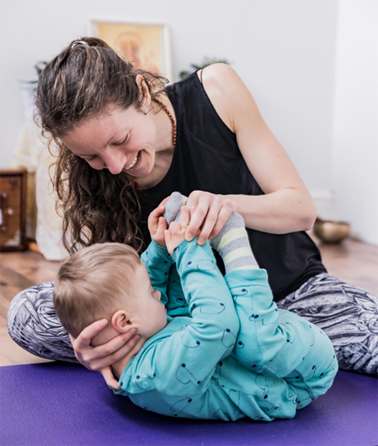Set in the heart of Islington, just a five minute walk from Highbury and Islington station, the MahaDevi Yoga Centre is a unique place of tranquillity and peace.
The centre opened its doors just over a year ago offering yoga therapy to children with special needs from 6 week old babies to teenagers in wheelchairs.
It is a specialist centre for the Sonia Sumar Method. Forty five years ago, senior yoga teacher Sonia Sumar had a daughter with Down’s Syndrome. At that time in rural Brazil, there were not many interventions for children with special needs so Sonia used her skills and knowledge of yoga to help Roberta. Soon she could see the benefits as Roberta grew strong, well balanced and developed new skills.
After her daughter’s death, Sonia Sumar decided to develop her approach and share it with other parents who faced similar challenges. Now she works with children who have cerebral palsy, autism, attention deficit disorder and ADHD as well as children like Roberta with Down’s Syndrome.
 The MahaDevi Centre offers 100 therapy sessions per week in the centre as well as treatment in schools, day centres, nurseries, hospitals and children hospices across London.
The MahaDevi Centre offers 100 therapy sessions per week in the centre as well as treatment in schools, day centres, nurseries, hospitals and children hospices across London.
There are also regular Hatha Yoga classes every day and monthly workshops and 25% of each payment goes directly to the MahaDevi Fund. This subsidises the yoga therapy sessions for children with special needs whose families cannot afford the fees.
This little community is making a difference. “My son Derek is 8 and has Cerebral Palsy. When he started yoga therapy his muscles were so tight and he was unable to sit unsupported, with very weak core strength and generally floppy posture. The main change is his increased ability to hold himself up in a sitting position more independently. He has a lot more core stability and head and neck control.â€
For more information or to make a donation, please visit http://mahadevicentre.com/
 When I wrote the book
When I wrote the book